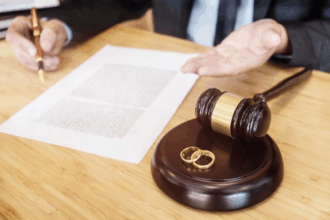Being charged with a crime is an intimidating and disorienting experience that can instantly disrupt your life. The legal system is complex, unforgiving, and moves quickly.
The initial actions you take—or fail to take—following an arrest or the issuance of a charge will profoundly impact the outcome of your case. Panic and fear are natural responses, but succumbing to them can lead to critical mistakes, such as speaking without counsel or missing crucial deadlines.
The goal in this challenging moment is to regain control by following a clear, strategic protocol designed to protect your constitutional rights and lay the groundwork for a robust legal defense.
Exercise Your Right to Silence Immediately
The single most important action you can take is to assert your right to remain silent. Do not, under any circumstances, speak about the details of your case to anyone other other than your future attorney. This includes police officers, investigators, cellmates, friends, or even family.
Any statement you make, even one intended to clarify or minimize your role, can be misinterpreted or used by the prosecution to build their case against you. Politely state that you wish to have a lawyer present before answering any questions, and then stop talking.
Secure Expert Legal Representation: Finding Your Criminal Defense Attorney
Your second, most critical step is to hire a qualified legal professional immediately. Do not wait. A dedicated criminal defense attorney is your best, and often only, shield against the power of the state.
Look for a lawyer who specializes in the specific type of crime you are charged with (e.g., DUI, white-collar crime, assault) and who has significant experience in the courts where your case will be heard.
A skilled criminal defense attorney will immediately begin investigating, advise you on procedural steps, and ensure your rights are protected throughout the entire legal process, from arraignment to trial.
Understanding Pre-Trial Release: Navigating the Bail Bond System
If you are detained after arrest, the immediate goal is securing your temporary release so you can assist your attorney in preparing your defense. A judge determines the amount of bail required for release.
If you cannot pay the full amount, you will likely need to engage with a professional bail bond service. A bail bond agency acts as a surety, posting the full amount of your bail in exchange for a non-refundable percentage fee.
Understanding this process and working quickly with a reputable bail bondsman is essential to minimizing the time spent in custody.
Document and Preserve All Evidence
As soon as possible, start documenting everything related to the incident and your arrest. Write down your memory of the events leading up to the charge, including times, dates, locations, and names of any potential witnesses.
Preserve all physical evidence, texts, emails, and any electronic data that may be relevant to your case. The integrity of this evidence may deteriorate quickly, so this preservation step is vital. Your attorney will use these records to cross-reference police reports and build a timeline.
Strictly Follow All Court and Release Requirements
Once you have been released—whether on your own recognizance or through a bail bond—you must strictly adhere to all conditions set by the court.
These requirements might include maintaining employment, restricting travel, undergoing drug testing, or avoiding contact with certain individuals.
Any failure to comply with these terms will result in your immediate re-arrest, forfeiture of the bail bond, and severely damage your credibility in the eyes of the court and the prosecution.











